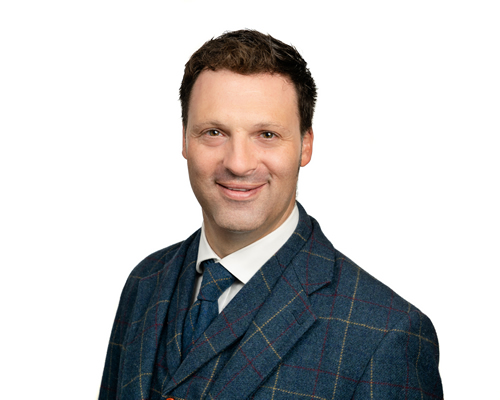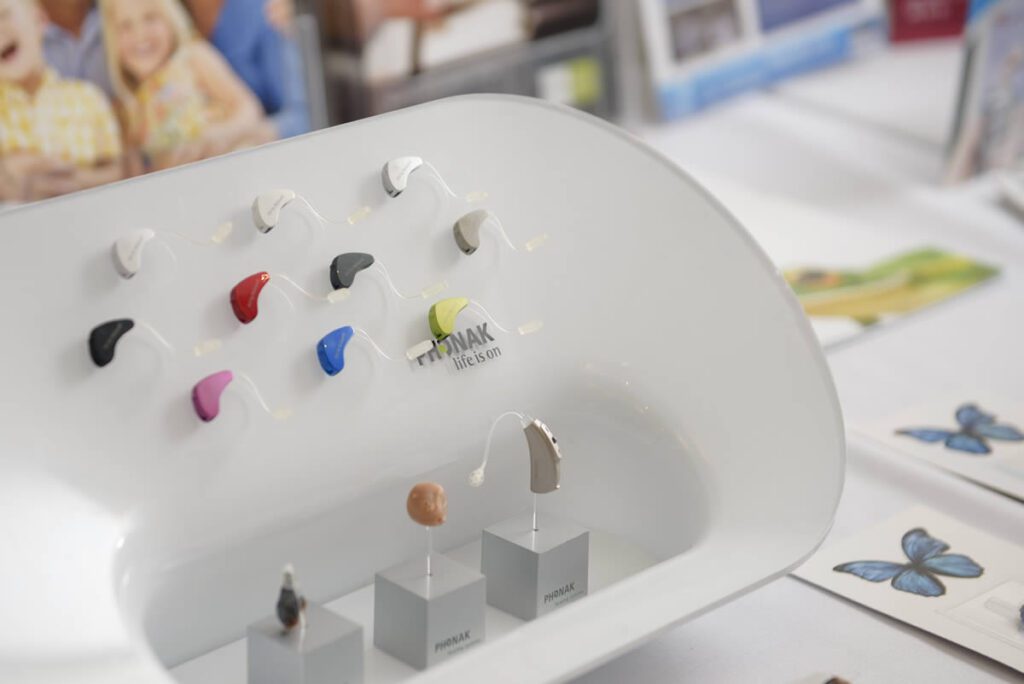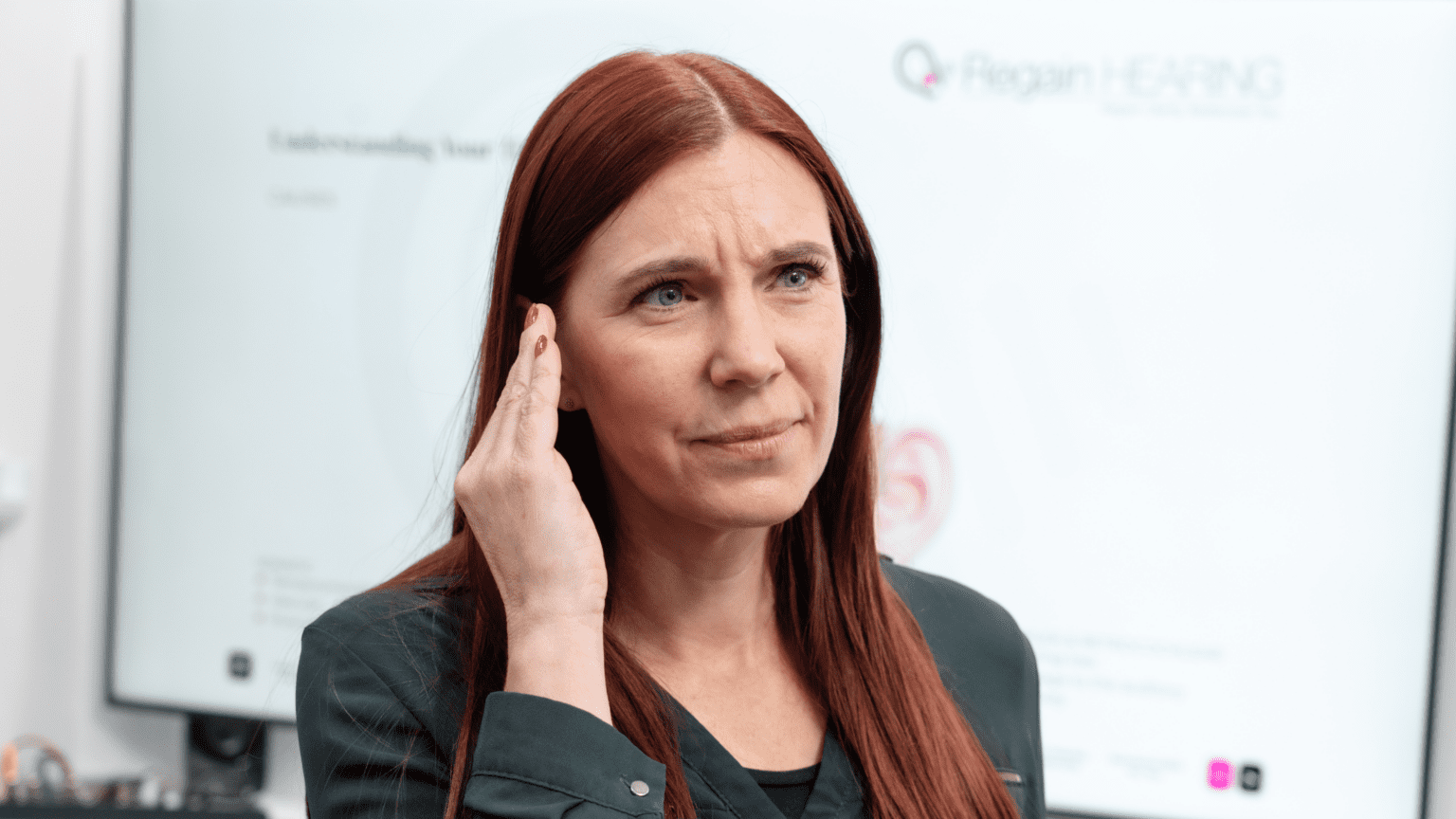Thinking of buying over-the-counter (off the shelf) hearing aids and wondering how effective they might be? Here’s what you need to know.
Many of us suffer from some degree of hearing loss and the effects can ripple out through all areas of your life, from your relationships to work and how you interact with people daily. Not being able to make out conversations properly can be deeply distressing and cause some people to withdraw from society because they may be embarrassed by their condition.
If left untreated, hearing loss can lead to social isolation and cause stress, depression, exhaustion and other conditions, including vertigo, that can make your life a misery. Surprisingly, many people don’t take action and do something about their hearing loss — particularly the elderly, who may think that it’s part of the ageing process and just have to accept it.
We know that in the UK, about 11 million people have difficulty hearing, and around 50,000 of them are children, according to official data. For whatever reason, the figure is forecast to shoot up to 14.5 million Brits with some form of hearing loss within the next ten years — that’s an incredible number that works out to around 20% of the UK population who will be hard of hearing. Some of the causes are due to genetics, diseases and complications during birth, while others will be down to living in noisy environments that over time irreparably damage hearing.
The solution for impaired hearing is to get the best hearing aids. These small devices work wonders in restoring hearing in those with partial, severe or profound hearing loss, giving people back their sense of hearing and allowing them to clearly hear conversations and other sounds in quiet and noisy situations. But how effective are hearing aids, especially the over-the-counter variety that you can quickly pick up and place in your ears, compared to those fitted by audiologists at a hearing clinic?
What Are Over-the-Counter Hearing Aids?
You can buy hearing aids — or “sound amplifiers” — on Amazon for as little as £30, and you just pop them in and see if they make any difference in your hearing. You may also be able to get them elsewhere, instead of visiting your GP or seeing an audiologist at a private practice, such as places abroad, and again, you’ll be pretty much hoping for the best that they work out, and you can regain some or all of your hearing. There are different levels of hearing loss and, as we’ve mentioned, different causes, so it’s hit-and-miss if you’re going to try and resolve it yourself.
Some companies provide hearing aids directly to consumers, via the internet. They post them out to prospects and then attempt to program them by connecting through a phone or PC. This will always afford limited results, due to a number of important factors that can severely impact on performance.
When researching hearing aids in this way, it’s easy to overlook these vital associated aspects, like the precise diagnosis/testing; ear canal sizes; accurate Real-Ear-Measurements; suitable power range; correct fit-size and placement; technology that’s appropriate to the hearing loss; earwax issues; overall ear health; history of falls; performance in noise; feedback; general escaping sound, side effects, to name but a few. Getting the right advice is key.
You can always get a hearing aid on the NHS if you’re a suitable candidate, as this would be preferable to OTC, or internet providers. However, there will nearly always be a long wait and you’ll end up with a clunky device that you may not like due to its appearance, that people will notice and the technology may not be as up to date. It could mean that you won’t benefit from the leaps and advances in hearing aid technology over the past several years, that has seen hearing aids turn into pieces of wizardry that can do all sorts of things, as well as giving you back your hearing — like allowing you to take phone calls and connecting directly to the TV, for high-definition sound quality.
It’s like your sight: if you’re suffering from problems with your vision, and particularly as you age, are you going to try and rectify it yourself, by buying cheap reading glasses from the supermarket or corner shop? You may be able to read and see things better, but the chances are that you’d be much better off with prescription glasses from an ophthalmologist that will protect your eyes and give you back full vision.
Are Individual Hearing Aids a Better Fit?
So, like with your vision, hearing problems almost always require individual attention, instead of trying to resolve it yourself. And just as there are different types of hearing loss, there are different kinds of hearing aids, including:
- Behind the Ear: The device is placed behind the ears.
- In the Ear: Hearing aids that are designed to go in the ear.
- In the Canal: The aids fit into the ear canal.
- Open Fit: These are a type of behind-the-ear aids, but have a tube going into the ear canal.
It’s not just about the type of hearing aid either, but also about how it fits in or on each person’s ear — this is critical for ensuring comfort and functionality. With over-the-counter hearing aids, it’s likely they won’t be a perfect fit for your ear and might be uncomfortable or even sore, as well as not working the way you expected.
Something else you don’t get with over-the-counter hearing aids, compared to the tailored variety, is programming. It’s important that an audiologist is able to program hearing aids to each person, using sophisticated tools, so that different levels of sounds are delivered to the person’s ear and they can set the device to provide the optimal hearing results.
Custom-Fit Hearing Aids and Service That Hit the Right Note
When you choose a hearing aid provider from an expert audiologist clinic like Regain Hearing, you get access to the best hearing aids on the market today — technological marvels you can buy thanks to exclusive supply agreements with manufacturers. And you can have them fitted to your exact physical specifications.
Other considerations for getting hearing aids from an audiologist include the important aspect of follow-up visits and care and maintenance of your hearing aids. Good hearing aids cost upwards of several thousand pounds — financing may be available at private audiologists, so you can spread the cost over several months or more — and you’ll want to take care of them so that they last and you get the most out of your investment. And because you’ll be wearing your hearing aids throughout the day, these sensitive electronic devices will be subject to lots of wear and tear.
Regain Hearing patients are patients for life. This means whatever you need with your hearing or hearing aids, we’re here for you, whether it’s cleaning your devices, servicing or reprogramming them, or if you’re having trouble with your hearing again. This is the kind of gold-standard service that patients love, because it gives them peace of mind that they can get help with their hearing and hearing aids if there’s a problem. There is none of this with over-the-counter hearing aids; you are on your own.
Your hearing is vital to your physical and mental health, and no one should take it for granted, especially when you’re having issues with it. Hearing loss is traumatic, but it’s not the end of the world, because with the proper hearing aids and the right level of personal attention from an experienced audiologist, soon you could be hearing the world in all its audible glory once again.
If you or someone you know is battling hearing loss, you can do something about it right now. Contact the experts at Regain Hearing today and get a hearing test done so you can find out what’s wrong, and get it fixed.







